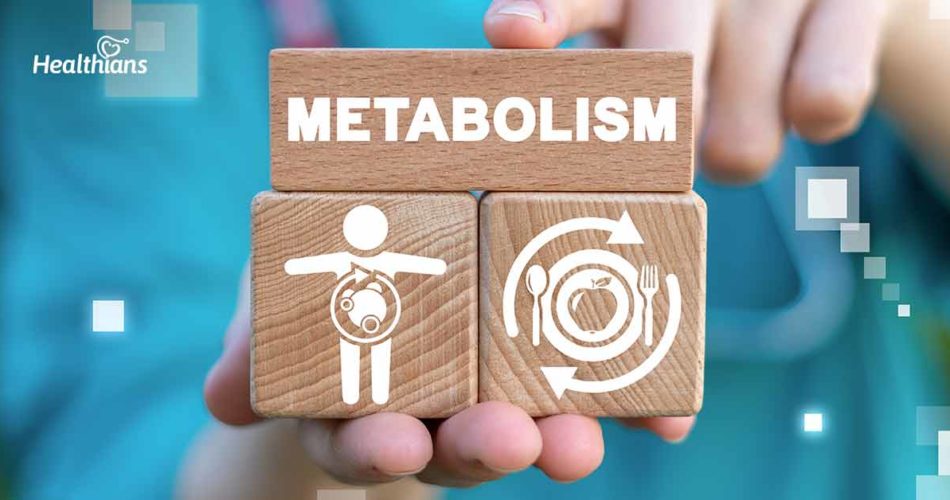Contributed by: Healthians Team
Introduction
We hear the word metabolism thrown around a lot in fitness circles. Think you know everything there is to know about your metabolism? Probably Not.
Despite what you may have heard about metabolism, your body is not a simple calorie-burning engine that you can calibrate and tweak to keep you trim. With all the special “metabolism-boosting” diets, the truth often gets mixed up with several myths. We identified the facts behind the top five metabolic myths to help clear up the misconceptions.
This is the first of a two-part series focusing on what to eat, how much to eat when to eat, and how much physical activity you need to be healthy.
In the second and concluding part, we will examine some more myths, presumptions, and facts about metabolism.
Let’s get started.
But before exploring — and debunking — some common food myths surrounding metabolism, it is important to double-check whether you know what metabolism is and what it does.
What is metabolism?
In simple terms, metabolism refers to a biochemical process in your body that runs 24×7 to convert the food and nutrients you consume into energy. This converted energy is what your body needs in order to breathe, think, circulate blood, grow and repair cells, and survive. It powers everything – from breathing to blinking – that is required to function.
Let us now take a look at some of the prevalent misconceptions and discuss the facts behind these chemical reactions.
Myth #1: Consuming green tea and hot chili peppers will boost metabolism
Fact:
Foods like green tea, caffeine, or hot chili peppers are no magic food that will speed up metabolism. Some studies have shown that green tea and hot chilies may provide a temporary boost in metabolic rates, but the difference isn’t very significant.
The path to a healthy lifestyle includes incorporating a balanced eating pattern filled with a variety of nutrient-rich foods.
Myth #2: Eating late at night slows down metabolism and turns to fat
Fact:
One of the most common pieces of nutritional advice is to avoid eating late at night. While it’s tempting to believe that our bodies have an internal clock programmed to retain anything consumed after 8 p.m. as fat, there is little evidence to support this fact.
Merely not eating late at night isn’t enough to keep fat from accumulating. You may liken this scenario to fuelling up a car wherein the time of day you fill your car with gas isn’t going to impact how far you’ll go on that tank.
In truth, it hardly matters whether you are eating late at night or dining earlier in the day as long as you are eating high-quality nutritious food in the proper portions. It is recommended that you eat regular meals throughout the day to prevent extreme hunger swings. If you’re eating later in the evening, be conscious of what you’re eating and put your snacks away while watching TV.
Myth #3: Eating a low-calorie diet and skipping meals can jumpstart weight loss
Fact:
Attempting to reduce weight by creating a huge calorie deficit can backfire. Our bodies are intelligent and survival-oriented. Calorie restriction might cause your body to believe it’s in a famine and that it needs to accomplish more with fewer calories. Your body adjusts to the calorie restriction and requires fewer calories to do the same tasks.
Instead of dieting, prioritize healthy foods such as whole grains, legumes, veggies, and fruits, as well as enjoyable physical activity. Don’t forget to take care of your stress and get enough sleep. These positive lifestyle choices can contribute to overall happiness.
Myth #4: Exercise boosts your metabolism long after you stop
Fact:
True, exercise burns more calories, especially when you raise your heart rate with activities like bicycling or swimming. Your boosted calorie burn will remain for the duration of your workout. You may continue to burn calories for another hour or so after that, but the benefits of exercise end there. Your metabolism will return to its resting rate once you stop moving.
You risk gaining weight if you eat a lot of calories after a workout in the hopes that your body will continue to burn calories for the rest of the day. Maintain your health by exercising and eating nutritious foods. Allowing exercise to be an excuse to consume high-calorie meals and beverages is not a good idea.
Myth #5: Eating small meals during the day increases your metabolism
Fact:
Unfortunately, there is little scientific evidence that eating small, frequent meals increases metabolism. Spreading your meals out throughout the day may help you avoid becoming overly hungry and overindulging. However, it is not a shortcut to weight loss.
Instead of focusing on when to eat — the key seems to be getting just the right amount of nutrition. Most athletes perform better when they consume lesser amounts of food more frequently. If you have a hard time stopping once you start eating, three meals a day may be a better option than a lot of small snacks for sticking to an acceptable consumption. Pay attention to your hunger signals and eat just when you’re hungry.




